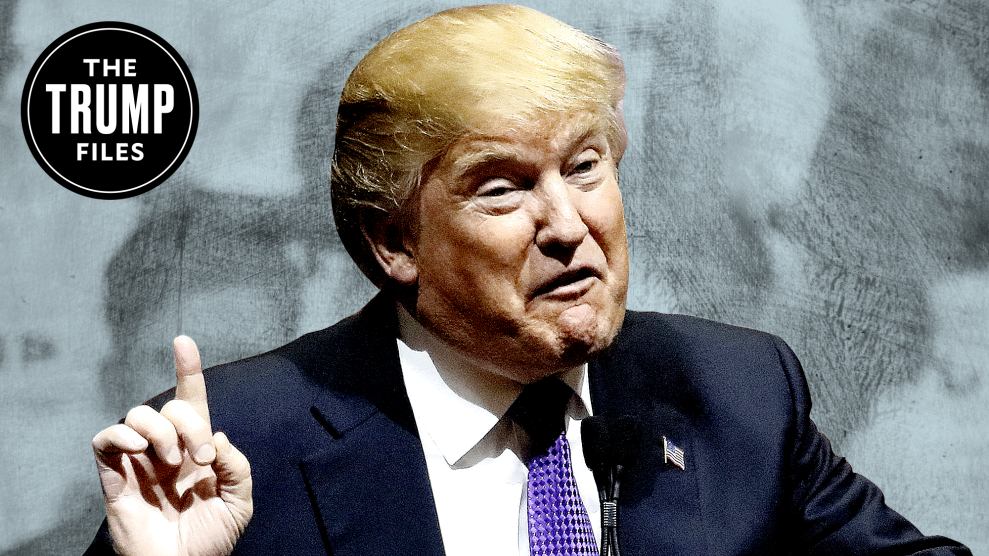
Julia Demaree Nikhinson/AP
Donald Trump has promised to prosecute his political opponents should he retake the White House. He’s planned to remove the firewall that has traditionally existed between the White House and the Justice Department, and harness federal prosecutors into political dirty work.
But Trump isn’t waiting for Inauguration Day, or even Election Day, to get something similar going—and his first target is the press: In the last 24 hours, Trump has filed legal complaints against two news organizations with frivolous charges. Whether they succeed might be beside the point, because they are a warning shot for what is coming if he wins.
Media organizations are well aware of the risks of crossing Trump, and some already look to be backing down.
On Thursday, Trump sued CBS News over its October “60 Minutes” interview with Vice President Kamala Harris. In the suit, Trump argues that the interview was edited to make Harris look good, amounting to election interference. “To paper over Kamala’s ‘word salad’ weakness, CBS used its national platform on 60 Minutes to cross the line from the exercise of judgment in reporting to deceitful, deceptive manipulation of news,” the complaint alleges. He is asking for $10 billion in damages.
The suit is legally ludicrous, according to experts. “It’s ridiculous junk and should be mocked,” Harvard professor Rebecca Tushnet told CNN. But the fact that it was filed in Amarillo, Texas, is a sign that Trump means business. The only logical reason to file the suit in this division is to secure a friendly judge, a practice known as judge-shopping. And in Amarillo, the only federal judge happens to be one of the most ideologically-driven conservative judges in the country: Matthew Kacsmaryk. Kacsmaryk has shown a willingness to go beyond the bounds of the law to advance lawsuits he agrees with. Most famously, he eschewed long-held legal doctrine to block the FDA’s approval of the abortion drug Mifepristone. (The Supreme Court overruled him.)
There is also a political reason to file the suit, which follows weeks of Trump complaining in public about CBS’s editing of the interview. Being able to point to a lawsuit alleging media bias furthers his argument to supporters that the press is the enemy and is working for the other side.
It’s one thing for Trump to sue CBS as a citizen. But if he wins, Trump could make sure this type of suit comes from the Justice Department. It’s a warning shot to the media that any coverage Trump deems unfavorable, including an interview with a rival, could land them in court opposite the US Government.
Media organizations are well aware of the risks of crossing Trump, and some already look to be backing down. Exhibit A are the last-minute decisions by the billionaires who own the Washington Post and the Los Angeles Times to block their papers’ editors from making Harris endorsements at the last minute. Amazon CEO Jeff Bezos, who owns the Post, has billions in government contracts that could be nullified in retribution under a Trump presidency.
Trump is already targeting the Post. On Thursday, the campaign submitted a complaint to the Federal Election Commission alleging that, by paying to boost stories critical of Trump, the Washington Post illegally donated to the Harris campaign. Clearly, Bezos’ decision not to endorse Harris hasn’t appeased Trump.
These attacks on both the Post and CBS should sound alarm bells. They also follow Trump’s efforts to punish CNN for its coverage during his first term, and his repeated calls for every major television broadcaster to lose its broadcasting license. Whether Trump could pull off such a feat is unclear—for one thing, local affiliates hold the licenses—but the message Trump is broadcasting is being heard loud and clear: If Trump wins, he will retaliate against the press.
Indeed, he’s already started.

















